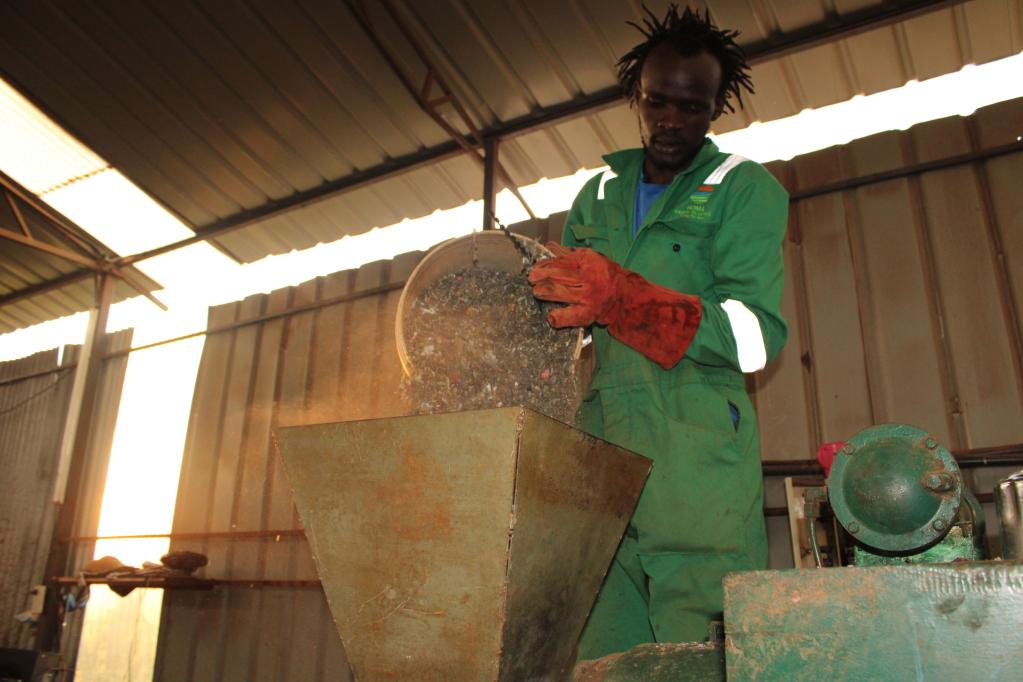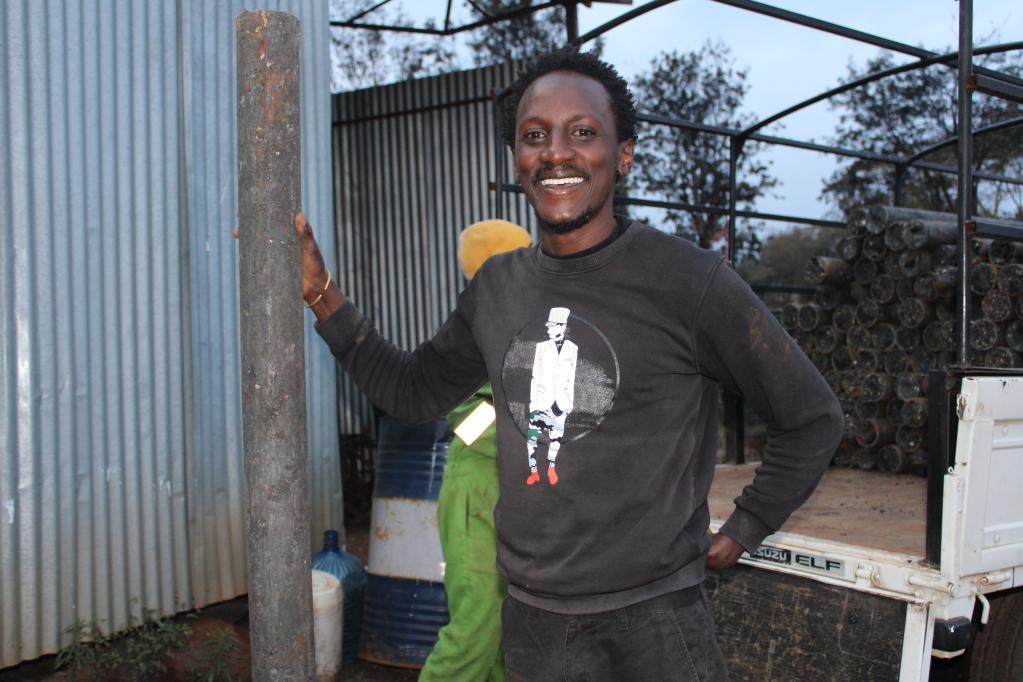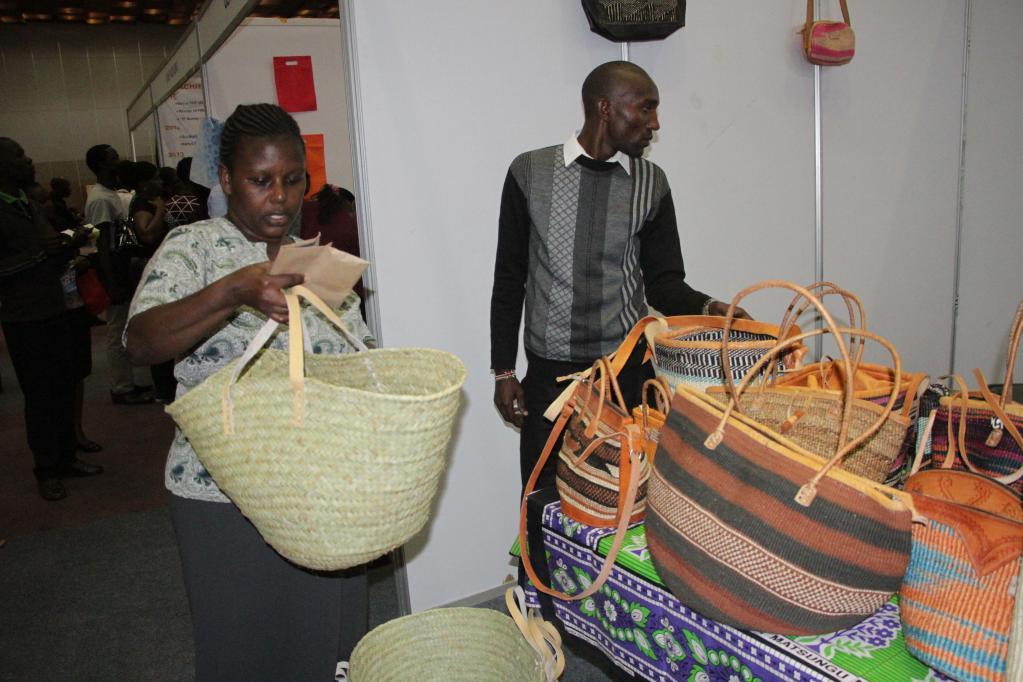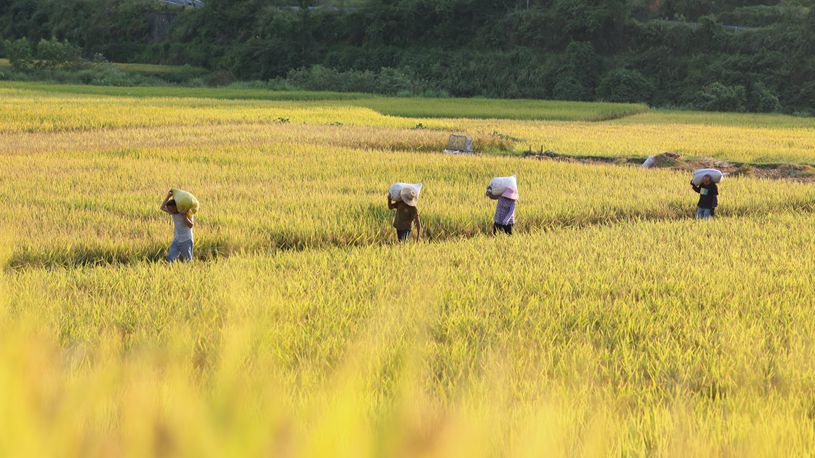
This photo, taken on Sept. 8, 2022, shows a worker pouring plastic pellets into a machine in Thiranga village, Kiambu county, Kenya. (Photo by Chrispinus Omar/Xinhua)
In 2017, the Kenyan government outlawed the manufacture, sale, and importation of all plastic bags used for commercial or household purposes. Five years on, characteristically cheap and multi-functional bags disappeared.
NAIROBI, Sept. 13 (Xinhua) -- A cacophony of noises emanates from Mugo Macharia's factory nestled in a farming village in the central Kenyan county of Kiambu, which borders the Kenyan capital of Nairobi. His factory has partnered with plastic waste suppliers from Nairobi operating within major landfills to provide the factory with raw materials.
Macharia is the founder of Noma Green Plastics, a social enterprise that converts plastic waste into multifunctional poles commonly used in fencing. He said the plastic poles are termite-proof, rot resistant, and have a lifespan of at least 40 years.
"Plastic is harmful to the environment. This formed part of the reason I went into recycling, on top of a desire to do something socially transformative," Macharia told Xinhua during a recent interview.

This photo, taken on Sept. 8, 2022, shows Mugo Macharis posing next to a stack of poles made from recycled plastic at his factory in Thiranga village, Kiambu county, Kenya. (Photo by Chrispinus Omar/Xinhua)
Some five years ago, in what was viewed as a watershed moment in Kenya's environment conservation effort, the government, through the Ministry of Environment, outlawed the manufacture, sale, and importation of all plastic bags used for commercial or household purposes. Soon enough, the characteristically cheap and multi-functional bags disappeared, paving the way for the introduction of environmentally-friendly alternatives alongside invigorated campaigns for the adoption of a circular economy that bore the promise of a safe, clean environment in line with Kenya's vision 2030.
As the country marks its fifth year since the adoption of this decisive resolution, players in the plastic waste value chain, such as Macharia, are upbeat about the progress made so far. "We are making progress because we have laws in place, such as the Sustainable Waste Management Act 2021, which calls for waste segregation at the household level; additionally, there are more groups that tackle waste from the producer side and more education on waste management," said Macharia.
Patricia Kombo, an environmentalist and climate change activist, recognized the positive impact of the withdrawal of plastic bags and pointed out that the ban on plastic bags has improved the dignity of people living in informal settlement areas. "In the past, plastic clogged their drainage system exposing communities to health hazards; now it is getting better," Kombo added.

The file photo shows locals looking at biodegradable packing bags in Nairobi, capital of Kenya, on Aug. 24, 2017. (Xinhua/Allan Mutiso)
According to the National Environment Management Authority (NEMA), Kenya generates an estimated 22,000 tonnes of waste daily. Its capital of Nairobi alone generates 2,400 tonnes of solid waste, out of which only 45 percent is recycled, reused, or transformed to be economically or ecologically beneficial, according to the World Bank.
In a bid to persuade more participants into the circular economy, the government offers tax incentives to industry players in the waste recycling value chain. In 2020, the country took its battle against plastics a notch higher by banning the entry of single-use plastics in protected areas such as game parks, forest reserves, and conservancies, reiterating its commitment to conserving biodiversity.
The fifth UN Environment Assembly (UNEA-5) held in February in Nairobi adopted 14 resolutions key among them the constitution of an intergovernmental negotiating committee to create an internationally binding agreement to end plastic pollution.
Macharia's clients at the moment are individuals who have bought into the idea of preserving the environment and those disenchanted with the markets' ordinary offerings. "As more and more people embrace the circular economy, there is a need for players to create more awareness around products made out of recycling to tap into the market better," Macharia added.












